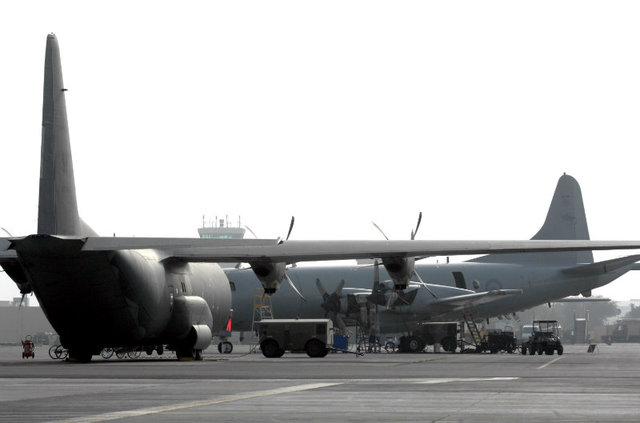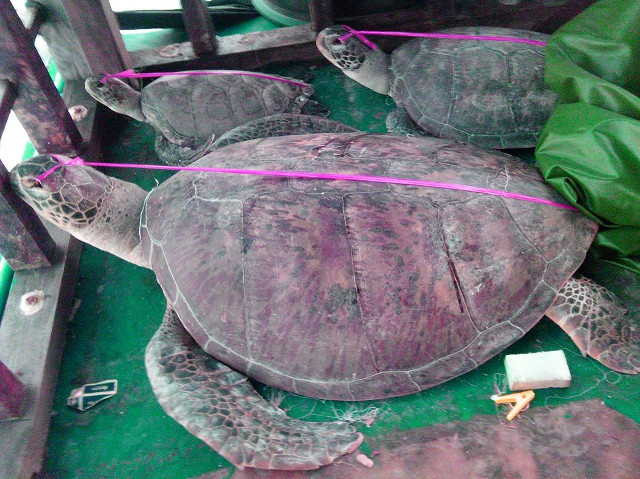The Philippine foreign affairs department says: 'The Australian aircraft was exercising its right of freedom of overflight, a principle we fully support'

OVERFLIGHT PATROLS. Australia confirms it has been doing patrols over disputed waters in the South China Sea. File photo from airforce.gov.au
The
“The Australian
aircraft was flying over international airspace and was exercising its right of
freedom of overflight, a principle we fully support,” Philippine foreign
affairs spokesperson Charlos Jose told Rappler on Thursday, December 17.
The Philippines,
one of the countries with claims to the strategic waterway it calls the West
Philippine Sea, has repeatedly called on China to respect freedom of navigation
and overflight. It filed a historic arbitration case before a United Nations
tribunal to challenge China
While the US has been doing freedom of navigation flights
and patrols near China 's
artificial islands, Australia China
Australian
Ambassador to the Philippines Bill Tweddell affirmed the objective of the
military flights.
“All
states have a right under international law to freedom of navigation and
freedom of overflight, including in the South China Sea .
As we do now, Australian vessels and aircraft will continue to exercise these
rights, including in the South China Sea ,"
Tweddell told Rappler.
The BBC's Rupert
Wingfield-Hayes flew on a civilian aircraft near 3 of China 's artificial islands in the South China Sea in late November. His report said that
the Chinese navy repeatedly sent warnings even after the captain stated that it
was a civilian flight.
Wingfield-Hayes's
team inadvertently intercepted radio communications showing that the Australian
military was conducting its own freedom of navigation flight.
“China Navy , China
The
BBC report illustrated the recent statement of a senior American naval commander accusing China
Admiral
Scott H. Swift of the US Pacific Fleet said on Monday, December 14, that China
"Even
now, ships and aircraft operating nearby these features, in accordance with
international law are subject to superfluous warnings that threaten routine
commercial and military operations," Swift said in a regional security
forum in Hawaii.
This
week, Reuters reported that the US China as Washington
The
next US Navy patrol will likely happen in January, Reuters said.

CAPTURED CREATURES. Photos of poached sea turtles (pawikan) in the Chinese vessel intercepted by the Philippine National Police Maritime Group on May 6, 2014. Photo courtesy of the PNP Maritime Group
PH
response? 'Favorable arbitration ruling'
The BBC also reported that
Chinese poachers were destroying coral reefs in the South
China Sea for giant clams that sell for $1,000 to $2,000 a pair.
Wingfield-Hayes
said Beijing does not “appear to be doing anything to stop them” while a
Philippine marine corps officer refused to go after the poachers in fear of a
shooting war.
Chinese
fishermen's poaching of endangered species and the destruction of the marine
environment in waters the Philippines
claims have long been the subject of protests from Manila
Yet
the activities continue with the Philippine response limited to diplomatic and
legal moves.
Jose
explained that the issue was a key argument in the Philippines
“China
“We
are hoping for a favorable ruling, which is also legally binding on China
The
Philippines rested its case
in early December, saying China Manila also told
the tribunal that China bars
Filipino fishermen from their traditional fishing grounds in the South China Sea . A ruling is expected in mid-2016.
Observers
though have repeatedly pointed out that getting Beijing
to comply with a ruling favorable to Manila
No EDCA
ruling 'kicks national security'
As
these developments play out, the Philippine Supreme Court again deferred ruling
on a military pact between the Philippines
and the United States
The
Court was expected to issue a decision on the Enhanced Defense Cooperation
Agreement (EDCA) Wednesday, December 16, but again put it off after over a year
of delay.
The
deal gives US troops, ships, and planes access to Philippine bases, and allows
the US China 's increasing
aggression, and to boost the capacity of the Philippine military, one of Asia 's weakest.

Philippines Supreme Court once again kicks country's national security down the road w no decision on EDCA. http://globalnation.inquirer.net/133866/still-no-sc-vote-on-edca …
Ernest
Bower, chair for Southeast Asia Studies at the Washington-based think tank
Center for Strategic and International Studies, said the deferment does not
bode well for the Philippines.
“Philippines Supreme Court once again kicks
country's national security down the road with no decision on EDCA,” Bower
tweeted.

No comments:
Post a Comment
Note: Only a member of this blog may post a comment.